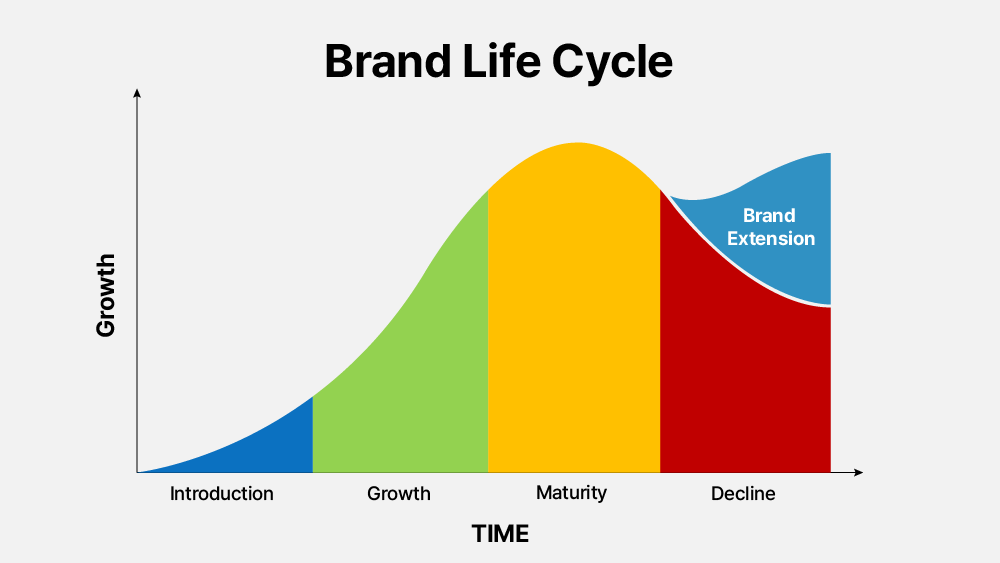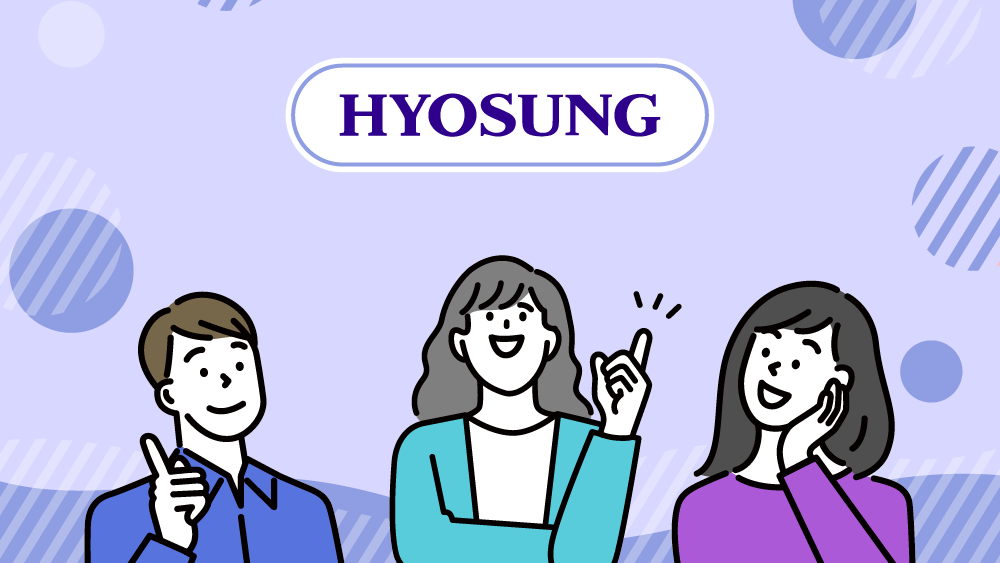What is a brand? Brand Awareness, Brand Perception, and Brand Life Cycle
2023.06.17
In our contemporary world, the term "brand" has become an integral part of our daily conversations, seamlessly interwoven into our language. We encounter it countless times, discussing products labeled as "luxury" or "superior," yet defining what a brand truly embodies proves to be a challenging task.
The term "brand" is believed to have its origins in the Norse word "brandr," meaning "to burn." Throughout history, its presence can be traced back to various practices. In ancient Europe, livestock owners employed branding as a means of claiming ownership, while in ancient Egypt, individuals etched their names on bricks to ensure product identification and quality assurance. Similarly, centuries ago, English whiskey makers used iron stamps on wooden barrels, therefore brands can establish an unbroken link to their lineage.
From its origins as a mark of ownership, origin, and quality assurance, brands have evolved into something far more profound than simply physical products. Today, a brand is an intangible and complex symbol that embodies a product or service's attributes, name, packaging, price, history, advertising methods, and the overall consumer experience. In the modern world, it plays a crucial role in driving sales and determining the value of a product by instilling trust in its quality.

Brand identity and brand awareness
Every year, Best Global Brands publishes the top ranking of the 100 most valuable brands in the world. In 2022, Apple topped the list with a staggering brand value of $482.2 billion. Following closely behind were industry giants Microsoft and Amazon, both boasting an impressive valuation of around $270 billion. Google secured the fourth position, with Samsung not far behind in fifth place. These remarkable companies, including Apple, Microsoft, Amazon, Google, Samsung, Toyota, Coca-Cola, Mercedes-Benz, Disney, and Nike, stand as the indisputable titans among the world's most valuable brands, each distinguished by a robust and unmistakable identity. Even for those unfamiliar with what exactly a brand is, there's a certain image that comes to mind when they think of these 10 names. Think of Apple, and the iconic typography, signature music, and elegant simplicity of design immediately come to mind. Consider Coca-Cola, and visions of vibrant red cans and polar bears effortlessly spring to mind. As for Nike, the resounding motto "Just Do It" resonates powerfully as a testament to the strength of their firmly imprinted, iconic brand identities.
These brands have a strong identity that represents them, but they are constantly changing, adapting, and innovating in order to remain memorable and impactful to consumers. The secret lies in preserving the brand's core identity while aligning packaging, logo, and other elements with current trends. Brands alter their names, slogans, and personalities, constantly renewing themselves. After several decades, international brands have undertaken countless rebranding efforts, skillfully ensuring that consumers perceive them as timeless while remaining stylish. This strategic approach is the key to enhancing brand value and ensuring recognition over time.
Throughout its history, Apple's logo has undergone numerous transformations, evolving from a vibrant rainbow to its current minimalist white design. Yet, the iconic bite-sized apple has endured as a persistent symbol of the brand. Similarly, Coca-Cola has gone from bottles to cans to plastic bottles, adopting various packaging, fonts, and occasional slogan changes. Yet, the unmistakable white lettering on red cans remains consistent. This emphasis on preserving core brand identity while adapting to trends is the key to sustaining the liveliness and value of the brand.
Hyosung is actively working to establish a lasting brand identity and elevate brand awareness. Over the span of 60 years, Hyosung has solidified its position as a market leader with exceptional technology. However, beyond public accomplishments, Hyosung has been deeply committed to environmental concerns long before it became a widespread focus for consumers and businesses alike.
As early as the 2000s, Hyosung began investing in extensive research and development of eco-friendly yarns, demonstrating its genuine dedication to environmental protection. Today, this commitment to Environmental, Social, and Governance (ESG) principles has become the lifeblood of the company. The upcoming brand identity of Hyosung will authentically reflect its profound concern for the environment, showcasing its efforts in developing and nurturing cutting-edge technologies for the benefit of the next generation and the future. Hyosung's brand identity will exceed time, resonating with consumers as a symbol of an eco-friendly enterprise.

Reasons to consume brands
In recent times, a growing preference for branded products has taken hold, with consumers displaying a willingness to invest more in products that boast a compelling narrative and intrinsic value. The Generation Z, in particular, has emerged as a powerful force in shaping consumer cultures. Two distinct trends have surfaced: value-consumption, where individuals are willing to pay a premium for products that resonate with their beliefs or hold personal value, and digging consumption, where people wholeheartedly invest in brands or hobbies they are passionate about and genuinely connect with. The attraction lies in these brands' identities and the stories they tell, fueling a sense of purpose and appreciation among consumers. As this generation becomes an increasingly consumer-driven class, these evolving trends are shaping the landscape of modern consumption.
Apple, Nike, Gucci, and Rolex undoubtedly offer exceptional products, but what truly captivates people and sparks their passion is the enticing image of the brand, the captivating story that accompanies each product, and the emotions and symbolism that embraces them. Whether it's holding an Apple device, wearing a limited edition pair of Nike sneakers, carrying a Gucci bag, or sporting a Rolex watch, the experience goes beyond mere possession of a product; it becomes a profound expression of one's aspirations and desired identity. These brands hold the power to evoke an idealized version of who one aspires to be or the persona they wish to embody when they embrace the brand. Through the brand's image, people can articulate and showcase a unique element of themselves, making the act of consuming the brand an avenue for self-expression. Embracing a brand becomes a form of artful self-representation, compelling individuals to make an emotional connection with these symbols of aspiration and inspiration.
In today's business landscape, brands have emerged as invaluable, intangible assets for companies and their products. They follow a distinct life cycle, each with its own lifespan. The journey begins with the introduction phase, where consumers are introduced to the company's image and its products or services. Then, in the refinement phase, the brand strives to maintain a perceived uniqueness or superiority over its competitors. Finally, the consolidation phase cements the well-established brand image with the product, solidifying its presence in the market. Brands that fail to navigate these crucial phases often fade away and are lost.
However, even when a brand reaches the consolidation stage, it must continuously evolve to stay relevant and avoid slipping from the minds of consumers. The reality is that brands emerge and vanish every day. Without a brand strategy that adapts to changing trends and resonates with the hearts and minds of customers, a brand risks disappearing. Therefore, nurturing and advancing a brand with consumer preferences is vital for sustained success in the ever-evolving market.
The environment is shaping our brand consumption patterns and our focus on value-driven choices. With the climate crisis intensifying and ecosystem degradation becoming an undeniable threat, people today are increasingly aware of the environmental issues that lie ahead. This awareness has led consumers to take environmental concerns more seriously, and they now expect companies to do the same.
Hyosung is dedicated to undertaking a range of environmental initiatives for a truly sustainable future through responsible ESG management and environmentally conscious technology. While Hyosung continues to develop technology for present-day convenience, the company continues its commitment of prioritizing safety and environmental preservation for tomorrow. Eco-friendliness stands at the heart of Hyosung's brand, making it an appealing choice for consumers who share a concern for the environment and seek to embrace eco-friendly values. As Hyosung's brand identity revolves around these principles, consumers are increasingly drawn to the company's products, recognizing them as a compelling choice that aligns with their own environmental aspirations.

The brand 'Hyosung'
Despite being a prominent corporation with a rich history of over half a century, Hyosung has largely remained unknown to the general public. This relative anonymity can be attributed to its focus on B2B industries, such as chemicals, heavy industry, and high-tech materials, which do not directly engage with the public. However, a shift in consumer behavior, particularly among the Generation Z is underway. As this new generation increasingly seeks out companies that demonstrate environmental responsibility, engage in social contribution activities, and uphold ethical management practices, it is time for Hyosung's brand to step into the spotlight. With a genuine dedication to ESG management, including eco-friendly efforts and business contributions, Hyosung's brand is prepared to gain well-deserved recognition for its firm commitment to a sustainable and responsible future.
Despite Hyosung's primary focus on industries that may not be heavily associated with eco-friendliness, such as the chemical industry, heavy industry, and advanced materials, the company is taking proactive measures to address environmental concerns. We are working to reduce carbon emissions at every stage of its raw material sourcing and production processes. Also, Hyosung is actively promoting the adoption of environmentally friendly components and continuously developing new eco-conscious materials.
To reinforce our commitment to ESG principles, Hyosung has introduced RE:GEN, a dedicated ESG brand that embodies tangible ESG management practices. Embracing the core values of circular economy, carbon neutrality, new energy, and resource conservation, the company has implemented these principles across all of its business endeavors.
Hyosung's affiliates are devoted to sustainable development, following the themes of RE:GEN ECO-LIFESTYLE, RE:GEN FUTURE MATERIALS, RE:GEN SMART IT, RE:GEN NEW ENERGY, and RE:GEN NEXT CHEMISTRY. These efforts underscore Hyosung's commitment to driving environmental progress and fostering a greener future.
Through these dedicated environmental efforts, Hyosung is actively working to redefine its brand image, creating a stronger association with eco-friendliness in the minds of the general public. Additionally, the company is embracing B2CB marketing strategies, allowing the public's preferences and interests to inform companies seeking access to Hyosung's advanced technologies. To effectively raise brand awareness among the Generation Z, Hyosung is proactively trying various approaches. This includes organizing offline events such as high-tech material art contests and pop-up stores, as well as operating a digital showroom using Metaverse technology. Additionally, the company is redesigning its homepage to provide an engaging and immersive experience that resonates with the preferences of this environmentally conscious audience.
People are passionate about brands and seek them out because they reflect their values. Consumer behavior has evolved, moving beyond mere transactions to emotional connections that reflect individuals' identities and beliefs. As environmental consciousness rises among consumers, the influence of eco-friendly brands has grown significantly. Hyosung, which has taken various steps in ESG management, has already been developing and investing in sustainable technologies to protect the environment, and Hyosung's commitment to the environment is an unwavering focus for, extending far into the future. At Hyosung, we strive to grow with those who embrace value consumption for the environment, making a path that resonates with the present and the next generation, fostering a greener and more responsible future for all.